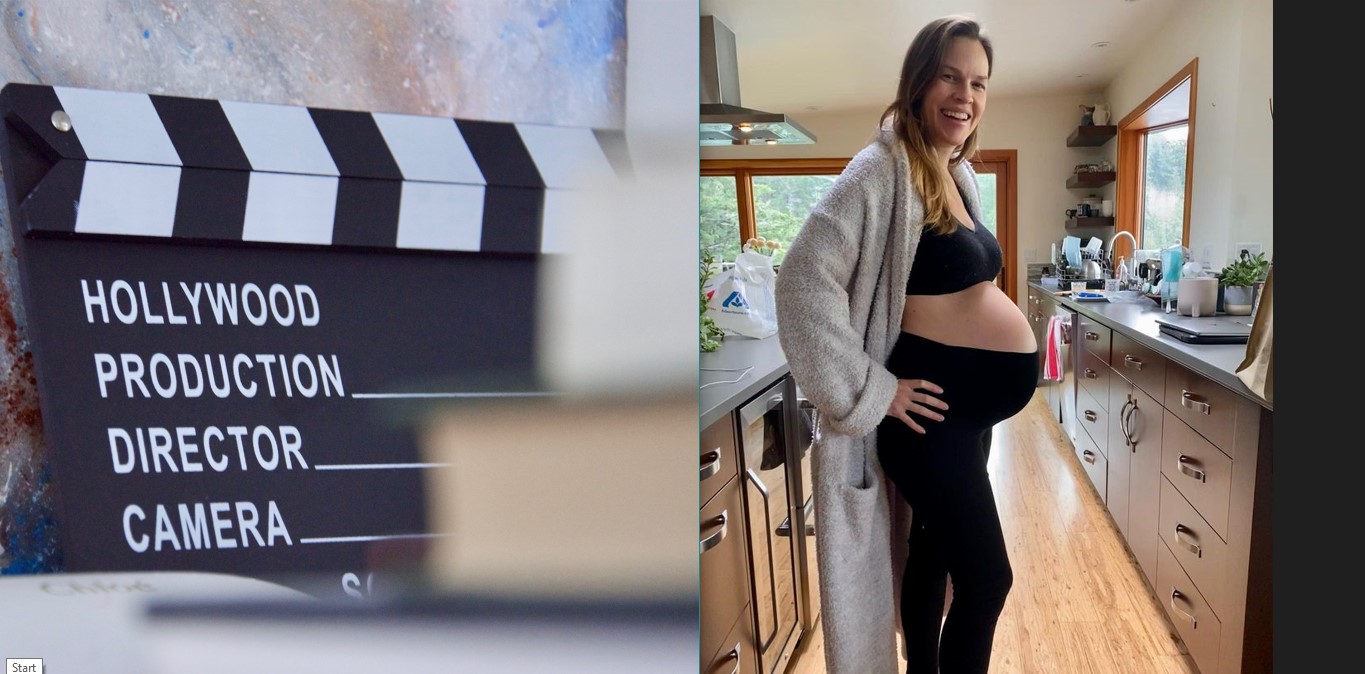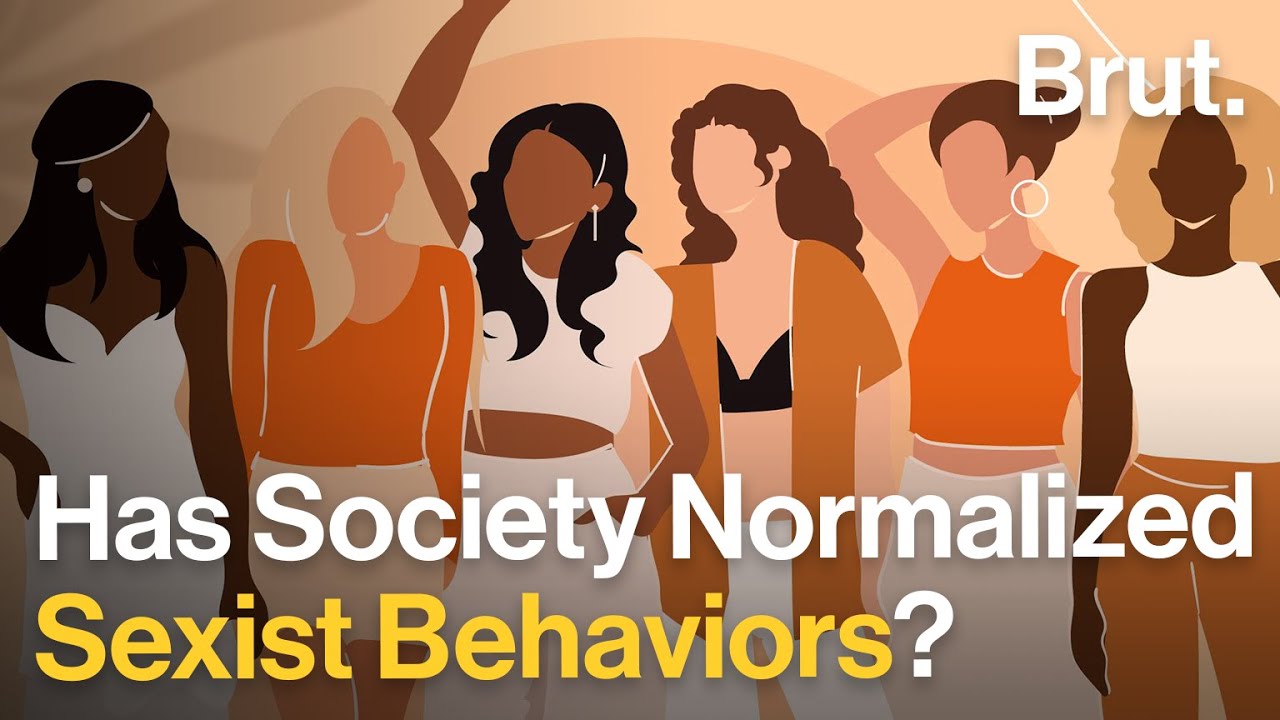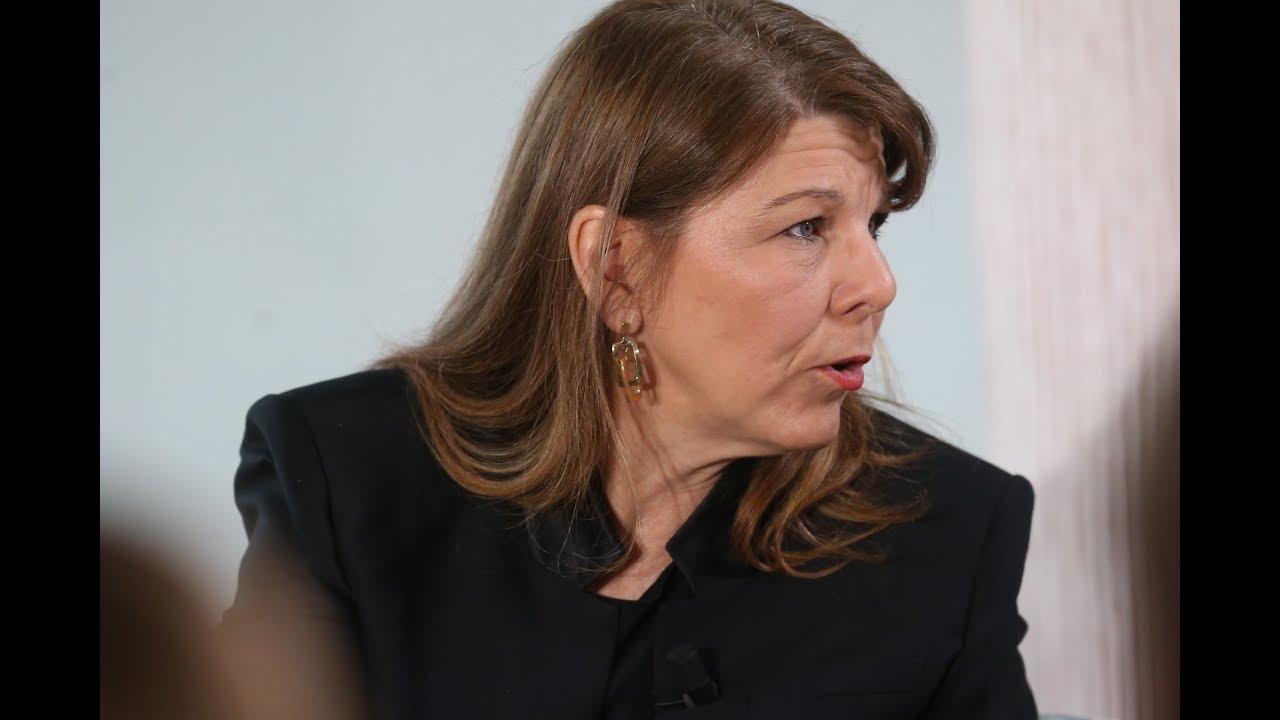Sexism In Hollywood - On Parenthood And Aging Actresses
Most of the time, it’s the women at “fault.” That’s true even in the glitzy entertainment industry, where sexism in Hollywood is prevalent. When it comes to gender discrimination, particularly when the focus is parenthood, it’s the actresses (again) who take all the “blame.” A two-time Oscar-winning actress is a recent target of sexists.
Author:James PierceReviewer:Paolo ReynaJun 27, 20231.2K Shares106.8K Views

In the glamorous world of celebrities in the U.S., where dreams are brought to life on the silver screen, an underlying issue persists: sexism in Hollywood.
Despite the glitz and glamor that captivates audiences worldwide, the film industry has long been plagued by gender inequality and discrimination.
Progress has been made in recent years to address these issues.
Nevertheless, the entertainment industry continues to grapple with deep-rooted biases and systemic barriers that hinder the advancement and fair representation of women.
This exploration into sexism in Hollywood shines a light on the challenges women face, the efforts being made to effect change, and the importance of creating an inclusive and equal platform for all talent in the entertainment industry.

Has Society Normalized Sexist Behaviors?
What Is Sexism?
Sexism is a form of discrimination or prejudice based on a person’s gender, typically directed against individuals of a particular sex, often women.
It involves the belief that one sex is superior to another and the subsequent unequal treatment or opportunities afforded to individuals based on their gender.
Sexism can manifest in various ways, ranging from subtle biases and stereotypes to overt acts of discrimination.
It can be found in different spheres of life, including:
- education
- employment
- politics
- media
- social interactions
Sexist attitudes and behaviors can be:
- deeply ingrained in cultural norms
- perpetuated through socialization
- reinforced by institutions and systems
One of the key aspects of sexism is the systematic disadvantage (e.g., lower wages) and oppression (e.g., domestic violence) faced by women.
Still, men can also face sexism, albeit in different forms.
Addressing sexism requires an intersectional approach.
This approach acknowledges that individuals experience multiple forms of oppression and discrimination based on their intersecting identities, which include:
- race
- class
- sexuality
Sexism in Hollywood, for example, has typically targeted people of color or those celebrities with African, Asian, and Latin American descent.
Synonyms For Sexism
There are several terms that are synonymous with or used interchangeably with sexism.
Perhaps the most frequently used one is “gender discrimination.”
This term refers to unjust or prejudiced treatment of individuals based on their gender. It encompasses all forms of discrimination based on gender, including sexism.
In 2015, Kathryn Bigelow - the first woman to bag an Oscar for Best Director for the war movie The Hurt Locker (2009)- told Time (quoted from a Harper’s Bazaar article):
“„I have always firmly believed that every director should be judged solely by their work, and not by their work based on their gender. Gender discrimination stigmatizes our entire industry.- Kathryn Bigelow
Here are some of the other commonly used terms, which celebrities and media personalities use when talking about sexism in Hollywood:
a. Gender bias
- describes a preference or prejudice toward one gender over another
- can manifest in various contexts (e.g., employment)
As Viola Davis said in 2016, quoted by Mashable (via Harper’s Bazaar):
“„If a woman does the same job as a man, she should be paid the same amount of money. She just should.- Viola Davis
b. Gender inequality
- unequal treatment or opportunities available to individuals based on their gender
- highlights the disparities and imbalances that exist between genders
c. Chauvinism
- an exaggerated belief in the superiority of one’s own gender (often leading to the mistreatment/oppression of the other gender)
- often used in the context of male chauvinism to describe a bias or prejudice against women
d. Misogyny
- a deep-seated hatred, contempt, or prejudice against women or girls
- encompasses attitudes and behaviors that devalue, belittle, or oppress women based on their gender
e. Patriarchy
- a social system/structure in which men hold primary power and privilege (women are disadvantaged and oppressed)
- involves the perpetuation of gender roles and norms that reinforce male dominance and control
As Kristen Stewart said in 2014, quoted by The Daily Beast (via Harper’s Bazaar):
“„It’s a male-dominated and driven business . . . If a woman makes a bad movie, or does something stupid, then the door just slams shut.- Kristen Stewart
f. Sex discrimination
- differential treatment based on an individual’s biological sex
- encompasses both direct and indirect forms of discrimination against individuals due to their sex
Here’s another statement touching on sexism in Hollywood and sex discrimination, this time from Sandra Bullock, as quoted by Time:
“„[On the red carpet] I’m going to be asked about my dress and my hair while the man standing next to me will be asked about his performance and political issues.- Sandra Bullock
Despite having slightly different nuances and connotations in certain contexts, these terms all relate to the unequal treatment or unfair practices based on an individual’s gender.
Sexism In Hollywood
Sexism in Hollywood has been a long-standing issue that has received increasing attention in recent years.
The American film industry, like many other sectors, has been marred by gender inequalities and biases that affect the representation, opportunities, and treatment of women.
Here are some key aspects highlighting how sexism takes place in Hollywood:
a. Gender Pay Gap
One of the most glaring manifestations of sexism in Hollywood is the significant gender pay gap or gender pay inequity.
Per Variety, Gwyneth Paltrow believes it’s “frustrating” and “painful.” She added:
“„Your salary is a way to quantify what you're worth. If men are being paid a lot more for doing the same thing, it feels sh*tty.- Gwyneth Paltrow
Women in Hollywood often earn less than their male counterparts for similar roles, even when they have:
- comparable levels of experience and success
- same amount of screentime
- same working hours
For comparison, look at the table below.
It shows two instances of gender pay gap in Hollywood, when Mark Wahlberg and Michelle Williams starred opposite each other in All the Money in the World (2017)and Matt Damon and Jessica Chastain in The Martian (2015):
| Actor - Salary | Actress - Salary |
| Mark Wahlberg - purportedly $5 million | Michelle Williams $625,000 |
| Matt Damon - between $15 and $25 million | Jessica Chastain - $1.75 million |
Note: All of them played a major role in their respective films. That’s one clear example of sexism in Hollywood.
As Paltrow, herself, said, how frustrating - and such description could even be an understatement.
b. Limited Opportunities
Another example of sexism in Hollywood is when female directors, writers, and producers are underrepresented.
Women in Hollywood receive fewer opportunities:
- to helm major projects
- to hold positions of power behind the scenes
c. Stereotyping and Objectification
Hollywood frequently perpetuates gender stereotypes.
The industry typically casts women in narrowly defined roles that emphasize physical appearance and sexualization.
On why she is choosy when it comes to roles offered to her, Zoe Saldana told Manhattan magazine in 2013 (taken from Harper’s Bazaar):
“„What matters most is that they be good female roles where . . . there’s real substance. No generic girlfriend or wife, and no sexy bombshell. Enough of that already!- Zoe Saldana
d. Ageism
Hollywood has been notorious for favoring younger women over older actresses.
As women age, they often face a decline in roles and opportunities compared to their male counterparts.
In 2015, Variety mentioned how Maggie Gyllenhaal got rejected for a role because of her age. That time she was 37.
Guess what the role was? The love interest of a male actor aged 55 in real life.
That’s sexism in Hollywood for you.
e. Lack of Recognition
Women in Hollywood face barriers when it comes to recognition and accolades.
The Academy Awards (the Oscars) - and other industry honors have historically underrepresented and undervalued the achievements of women in film.
The 1st Academy Awards was on May 16, 1929. The 94th Academy Awards will be in 2023.
By 2021, only 22 black actors - 12 men; 10 women - have won an Oscar.
f. Hostile Work Environment
Reports of sexual harassment and misconduct have shed light on the hostile work environment that exists in Hollywood.
Many women have come forward with stories of exploitation, discrimination, and abuse by influential figures within the industry.
Hollywood MeToo Movement
Now for some good news.
Efforts to address sexism in Hollywood have gained momentum in recent years.
Organizations like Time’s Up and the #MeToo movement have raised awareness and initiated conversations about gender inequality and harassment.
There have been calls for:
- increased representation
- equal pay
- diverse storytelling
Additionally, the public is becoming more and more aware about sexism in Hollywood.
There’s now a growing demand for accountability and a reevaluation of industry norms to create a more inclusive and equitable Hollywood.

Hollywood Sexism: By the Numbers
Sexism And Motherhood
Sexism and motherhood are interconnected concepts that have been subject to societal attitudes and gender-based discrimination throughout history.
One of the key points to consider: double standards.
Mothers are often judged and held to different standards than fathers, facing criticism for choices related to their:
- parenting style
- work-life balance
- personal aspirations
A multi-awarded actress and a six-foot tall model, film and TV actress, and singer both became victims of sexism in Hollywood in relation to motherhood.
Hilary Swank Twin Babies
Hilary Swank won several awards for her roles in Camp Wilder (1993), Boys Don’t Cry (1999), and Million Dollar Baby (2003).
She also reaped praises and bagged awards for her performances in The Black Dahlia (2007), P.S. I Love You (2008), and Amelia (2009).
Swank and entrepreneur Philip Schneider got married in August 2018.
In April 2023, the couple welcomed their first children: fraternal twins.
For giving birth at 48 (she’ll be turning 49 on July 30), according to Glamour, some netizens criticized the new mom for being “irresponsible.”
Irresponsible in what way exactly? Well, for deciding to become a parent while in her late forties already.
That said, Al Pacino, who turned 83 last April, and his girlfriend Noor Alfallah, 29, a film producer, recently became parents to Roman Pacino.
Pacino first became a father in 1989 when he was 49 (with acting coach and ex-girlfriend Jan Tarrant). The second time (fraternal twins; with actress and ex-wife Beverly D’Angelo), in 2001. He was 60 then.
In April 2023, Robert De Niro, who will celebrate his 80th birthday in August, and 45-year-old girlfriend Tiffany Chen welcomed their baby, whom they named Gia Virginia.
There appears to be no bashing from netizens about Pacino and De Niro siring a child as senior citizens.
This is clearly sexism in Hollywood - parenthood edition.
Glamour said that while 40-something childless male (presumably married) actors don’t get the harsh remarks/treatments that childless female actors receive, such as in the case of Jennifer Aniston.
Brigitte Nielsen Pregnant
In 2018, at age 54, Brigitte Nielsen, a Danish model-actress-singer (ex-wife to Sylvester Stallone), gave birth to Frida.
She got pregnant through IVF (in-vitro fertilization) treatment.
Based on several news reports, she was compelled to defend her decision to have another child all because of her age.
In a 2019 interview for The Irish Times, Nielsen said:
“„When people say you were 54 - yeah, well, what about all the men who are in their 60s, 70s, 80s?- Brigitte Nielsen
Then she added:
“„I saw Jeff Goldblum recently and I said: ‘Jeff! How are you doing, old daddy?’- Brigitte Nielsen
In 2017, Goldblum was 64 when he welcomed his second child, River Joe, to his third wife Emilie Livingston, a former Canadian Olympian (gymnast).
People Also Ask
What Are Some Examples Of Sexism In Everyday Life?
Sexism is a pervasive issue that can manifest in various forms in everyday life.
Here are some examples of sexism that individuals may encounter:
- workplace discrimination(e.g., unequal pay between men and women, getting overlooked for promotion due to one’s gender)
- stereotyping(e.g., a domesticated role for women)
- objectification(e.g., too much focus on women’s physical appearance)
- street harassment(e.g., catcalling women)
- microaggressions(e.g., interrupting or talking over women in conversations, belittling their achievements)
What Are Sexist Terms In English Language?
Sexist terms are words or phrases that discriminate against or demean individuals based on their gender.
Here are some examples of commonly recognized English sexist terms:
| Sexist Term | Meaning |
| bitch | a derogatory term used to insult women |
| boys will be boys | a phrase that excuses or minimizes inappropriate behavior by men or boys |
| chick | a diminutive term for women, sometimes considered patronizing |
| cunt | a highly offensive term used to degrade women |
| darling, honey, sweetheart, (when used condescendingly) | dismissive and belittling when used in a professional context |
| man up | implies men should be tough and suppress their emotions |
| slut | a derogatory term used to shame women for perceived promiscuity |
| whore | a derogatory term used to demean women involved in sex work |
How To Avoid Sexism?
Avoiding sexism requires a conscious effort to challenge and change ingrained biases and behaviors.
Here are some ways to combat sexism and avoid being sexist or to avoid sexism:
1. Treat everyone with respect.
2. Pay attention to the language you use.
3. Educate yourself. Learn about gender equality and the impact of sexism.
4. Examine your own biases. Reflect on your attitudes, beliefs, and assumptions about gender.
5. Support organizations and initiatives working towards gender equity.
Final Thoughts
Sexism in Hollywood is a multifaceted problem.
It encompasses unequal pay, limited opportunities for female filmmakers and actors, objectification, and the perpetuation of harmful gender stereotypes.
Note that sexism can affect individuals of all genders, although women tend to experience it more frequently and severely.
Creating awareness, challenging stereotypes, promoting gender equality, and fostering respectful attitudes and behaviors are crucial steps toward combating everyday sexism.
For sexism in Hollywood, the celebrities should take courage to voice their opinions so that their fans - and the general public - will become more aware of it.

James Pierce
Author

Paolo Reyna
Reviewer
Latest Articles
Popular Articles



